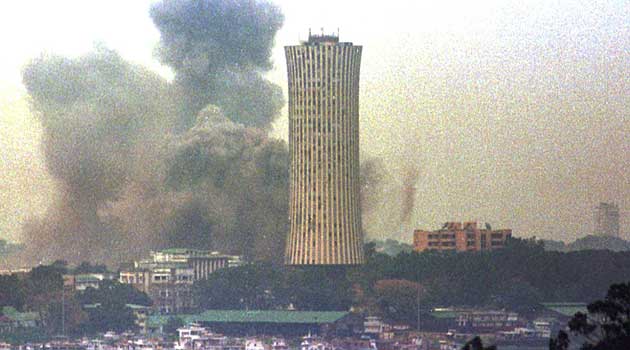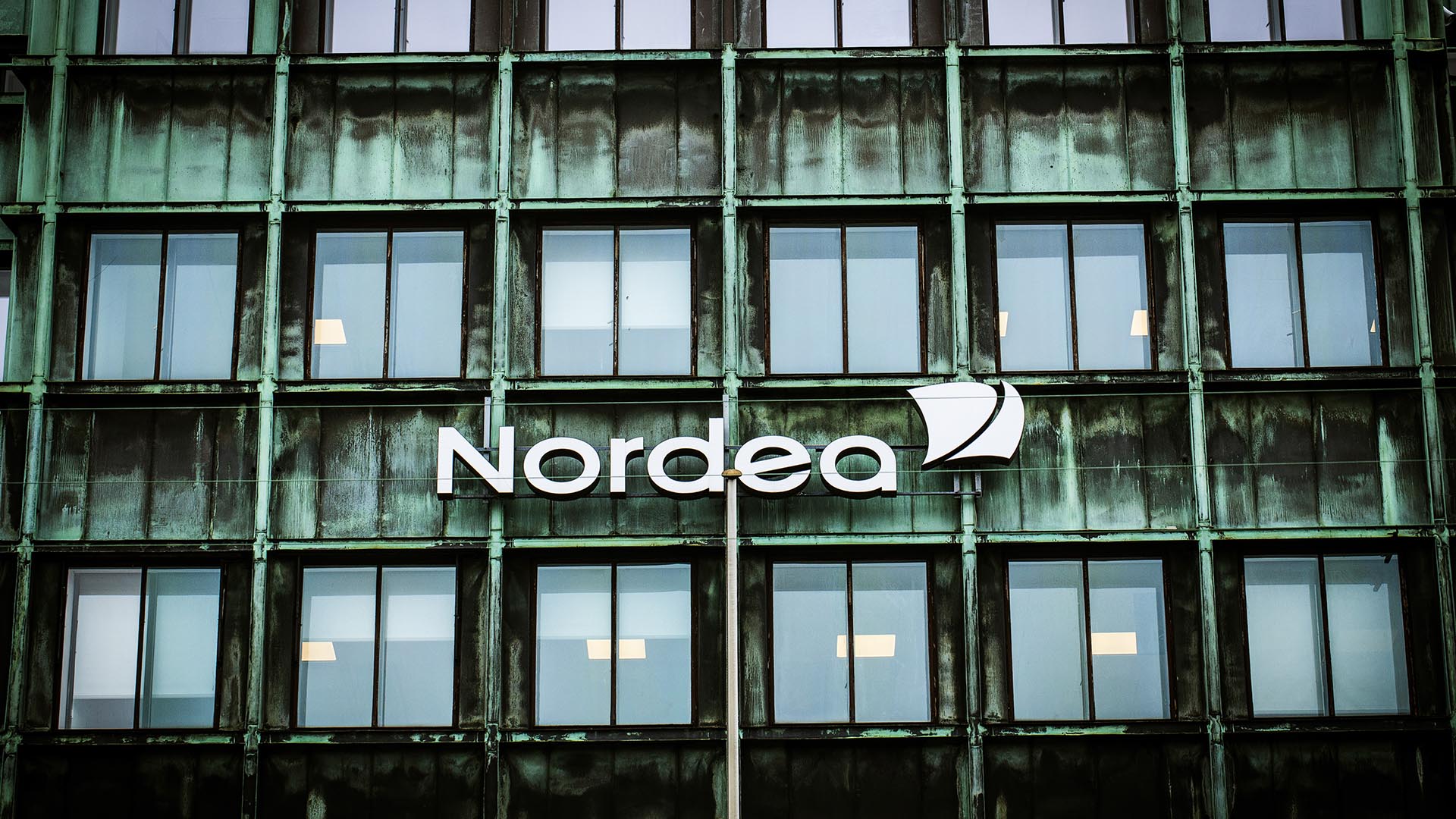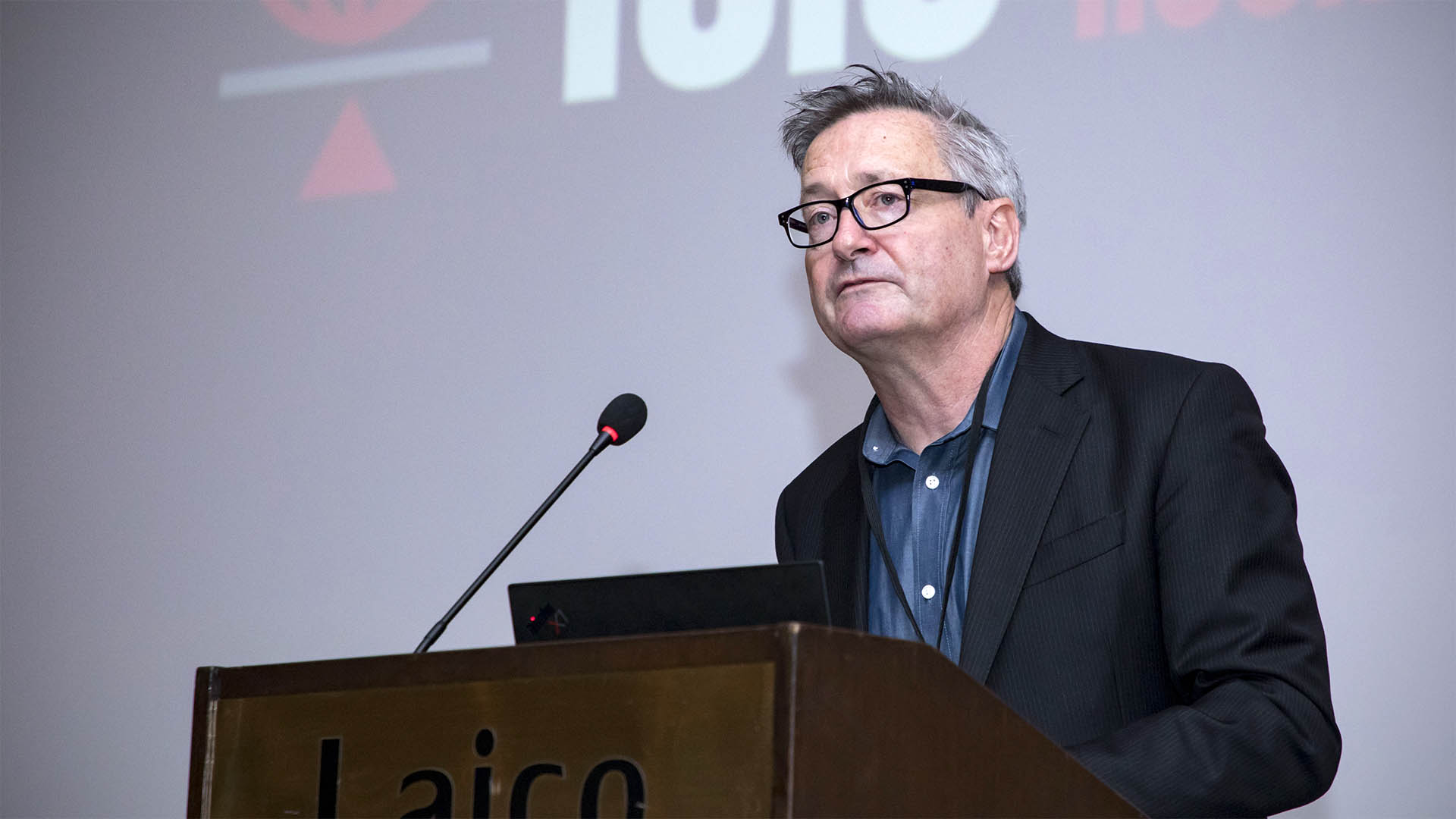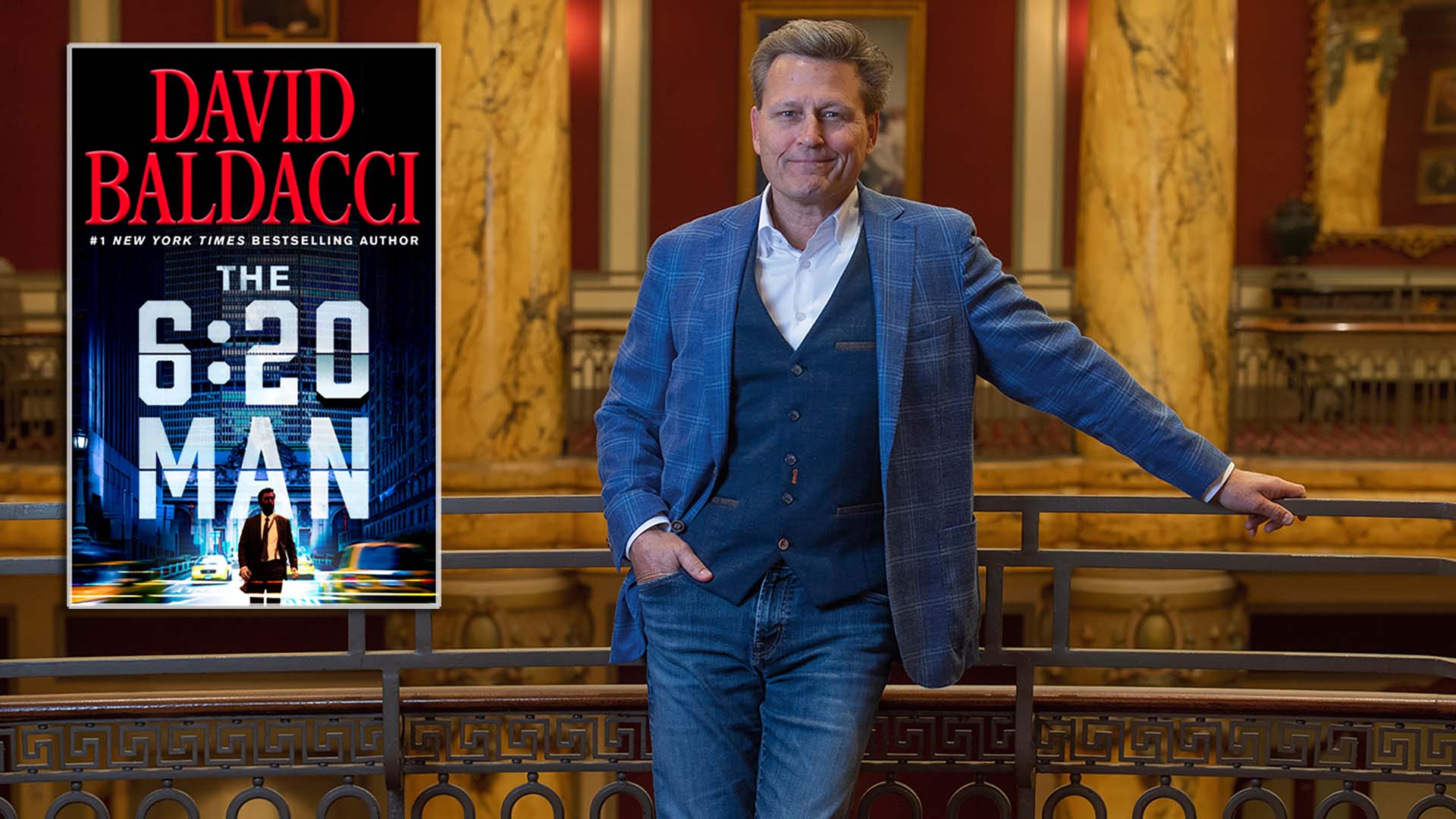Secret records from British Virgin Islands firm show a South African and two Americans reaped $2.5 million from aborted sale of surplus military choppers to Congolese leader.
On June 5, 1997, all hell broke loose in Brazzaville. Presidential forces moved on the compound of a former president whose militia hit back, igniting a civil war that would lay to waste much of the Congolese capital and claim the lives of thousands of civilians, many of them victims of indiscriminate bombardment from helicopters.
Five days earlier, as his forces readied for the offensive, then-President Pascal Lissouba personally approved the purchase of four ex-South African Air Force helicopters offered by a Johannesburg company headed by a German expat.
They were French-designed Puma SA 330L transporters, suitable for military and civilian use.
Within weeks, as the war raged on, tens of millions of petrodollars started sloshing from a Paris account controlled by Lissouba’s oil-rich regime to pay for the Pumas and other items that could be useful in war. Other hardware ordered from companies linked to the German expat included two East-bloc MI-17 multi-role helicopters, four fixed-wing cargo and transport aircraft, and 290 trucks.
The fact and destination of those payments would likely have remained hidden were it not for Lissouba fleeing and his predecessor, current President Denis Sassou-Nguesso, publishing a trove of documents that were discovered when he took the presidential palace that October.
Now, a unique peek into these money flows — and the use of offshore secrecy jurisdictions affording anonymity in such transactions — has been provided by offshore company records uncovered by the International Consortium of Investigative Journalists.
ICIJ has obtained 2.5 million documents from two firms which provide services to offshore clients in the British Virgin Islands (BVI) and similar jurisdictions. It is believed to be the largest breach of offshore secrecy yet, and has given rise to the publication, starting this week, of investigative articles across the globe.
Profiting from war
Selected records reveal how millions from Lissouba’s order of the Pumas overflowed into the BVI accounts of three Johannesburg-based businessmen — although the two who are still alive now claim they didn’t know the ultimate source of the money. These helicopters were ultimately not delivered to the Republic of Congo.
The three were Johannesburg dealmaker Esmond Myhill and U.S. nationals Richard Parker and the late Roy Segers. They were doing business through Exotek Management Services Ltd, a company registered for them in the BVI by Commonwealth Trust Limited (CTL), a firm that specializes in setting up offshore entities for clients who want to keep their financial affairs confidential.
The name Exotek had previously emerged in the document trove published by Sassou-Nguesso, after he captured the palace. Among the documents was a June 1, 1997, invoice, approved by Lissouba’s signature, detailing an offer to the Congolese government of four Pumas at an asking price of $19.9 million.
The invoice was issued by Johannesburg-based company CED Marketing, headed by German expat Rudolph Wollenhaupt, but stated that the offer was “on behalf of” Exotek and another company.
The documents did not reveal, however, who was behind Exotek. That 15-year-old mystery has now been solved by internal CTL documents that are among the offshore records obtained by ICIJ.
The records show that Myhill headed Exotek, through which he, Parker and Segers had exclusive rights to the helicopters that were to be sold to Lissouba. They reveal how, on August 28 that year, the three partners were paid $2.5 million into a CTL trust account at Chase Manhattan Bank, split with $900,000 going to Myhill and $800,000 each to Parker and Segers.
Beginning that same day, hundreds of thousands of dollars began to flow onwards to destinations in the United States, the UK, Switzerland, BVI and other places that remain a mystery.
CTL immediately funneled $423,500 from Segers’ share, described as: “Eleven transfers as requested per fax of this date.” And $311,000 flowed similarly from Parker’s share days later.
Parker and Segers also used some of the money to pay start-up and service fees on two new offshore companies based in the BVI, while a large part of Myhill’s portion was moved from the BVI to Switzerland — from one secrecy jurisdiction to another.
The records show $300,000 went to the Swiss account of investment management firm Rathbones in 1998 and more than $40,000 to Swiss law firm Umbricht Rechtsanwälte and one of its attorneys over the next two years. Myhill paid another $120,000, the records indicate, to Hofmann Schneider Capital, an investment firm with Swiss, Austrian and Panamanian registrations.
Meanwhile, the trio also splurged on high living. Less than a week after taking transfer of the Puma money, Segers spent nearly $47,000 at Louisiana car dealer Orr Acura BMW Infiniti. Parker and Segers transferred more than half a million dollars to South African real estate agent Pam Golding, and Myhill received several large transfers of between $5,000 and $15,000 in London and South African bank accounts — in at least one instance while he was travelling in London.
The records show that CTL provided services that went beyond simply registering companies in the BVI. It administered the three partners’ funds in the secrecy jurisdiction too.
Emails between Myhill and CTL co-founder Scott Wilson also suggest Wilson got involved directly in his clients’ business dealings. Years later, Myhill wrote to Wilson recalling “when we first made contact during the Puma days.”
A record obtained independently by the M&G Centre for Investigative Journalism (MGCIJ) shows Wilson writing on Exotek letterhead, on behalf of the company, to confirm an aspect of the helicopter transaction.
Wilson did not answer questions about the Puma deal, saying they related to a “responsibility that I left over a dozen years ago” and he no longer had access to the files. But, he said, “As a matter of policy, CTL would never knowingly have been involved with arms sales. In the scenario described, for CTL to have been involved in any capacity, including simply acting as registered agent, any such aircraft would have had to have been completely unarmed.”
Thomas Ward, who co-founded CTL with Wilson in 1994, initially claimed that “CTL never, to the best of my knowledge and belief, ever had client funds pass through its hands, other than relatively small payments for its professional registered agent and office services.”
Later, when pressed on the Puma deal, he conceded recalling a “single case” where “CTL did act as sort of an ‘Escrow Agent’ for the sale of a BVI company to a third party, holding the buyer’s funds temporarily for the seller.” Like Wilson, he said his recollection imperfect due to the passage of time.
The CTL records obtained by ICIJ show that the arrangement in the Puma deal was in fact not temporary. CTL held the funds and made disbursements on behalf of Myhill over the course of six years and Parker and Segers two years.
Relocating to South Africa
Parker told MGCIJ he and Segers had relocated to South Africa in the mid-2000s hoping to make millions buying and selling surplus military aircraft and spare parts from the government.
Parker describes himself as a former air conditioner parts salesman and financier who was working in Kuwait when he learned of the lucrative South African proposition from Esmond Myhill, who worked in the 1980s and 1990s for security equipment suppliers, including in Kuwait.
Parker explained: “He said to me, ‘Well, don’t you have a business partner who’s really into aviation?’ I flew directly from Kuwait to South Africa and had some meetings with Esmond, and then I contacted Roy Segers who was in Texas.”
A pilot and self-described “risk-taker, traveler, adventurer, ex-marine [who] seeks the unusual,” Segers flew to South Africa a month later. “And we all got together and then started meeting with the people from Armscor,” Parker said.
Big deal
Their goal was to buy and sell 28 Puma helicopters from Armscor, which among other duties disposes of surplus South African defense materiel.
“It wasn’t just the surplus aircraft — it was the spares. That’s what made it very attractive,” Parker said.
Surplus state military aircraft may gain enormous value once they are refurbished using cheaply purchased spares. In later written correspondence, an official of Denel Aviation, an Armscor sister company, valued the basic Puma airframes at $150,000 each.
“When you take the refurbishment costs and the approximate value of those helicopters, the profit our company stood to make was $20 million,” Parker explained.
Negotiating with Armscor “was very slow going for the first several months, but it looked like there were some possibilities and we just kept after it,” Parker said.
Myhill said, “Once we had the right to buy the helicopters, the whole deal really depended on us selling them at a price where we could have them refurbished to whatever the requirements of the customer would be.”
Both Parker and Myhill said Exotek was trying to sell the fleet to Greece or Turkey after having it overhauled by Denel Aviation.
“Forced” to sell
But, Parker said: “At the eleventh hour the helicopter guys at Denel said we can’t stand behind this project any longer. And we were sitting there with our bankers and we were flabbergasted.”
Within days, he said, they were called by a contact of Wollenhaupt’s who said: “I understand that you guys are in a difficult position but if you come to this meeting [at Wollenhaupt’s home] some things can be cleared up.”
Myhill said: “All I can assume is that [Wollenhaupt] got to know from Denel that we had the rights. He then engaged in discussions with us. We did not have a buyer at all at that stage. We had tried our damnedest to dispose of them for normal profit, but were unable to do so.”
In Parker’s view, he and his partners were forced to sell Exotek — and the contract giving the right to buy the Pumas from Armscor with it — for $2.5 million, to Namibian-registered Support Systems Corporation, a company 51 percent owned by another Wollenhaupt entity.
Wollenhaupt gave MGCIJ a similar account, although he denied forcing anyone to sell. He said Lissouba wanted “VIP” helicopters from him but when he went knocking at Armscor and Denel’s door to supply Pumas, officials told him to deal with Exotek, which had the right to acquire all 28 available.
Wollenhaupt insisted that the president did not want them for the war effort. He pointed to Lissouba having indicated, next to his signature on the June 1 invoice for the four Pumas, that he was interested in another 16. The refurbishment schedule, Wollenhaupt said, was two every three months. “Lissouba was aware of this timeline and therefore could not have expected that these helicopters would arrive in Congo soon.”
Wollenhaupt’s version appears to be undermined by the timeline on the invoice itself, which promised faster delivery — two by mid-August and another two by mid-September — meaning Lissouba would have received the original order, had all gone according to plan, during the course of the hostilities.
Be that as it may, the three partners sold Exotek to Support Systems Corporation, the Wollenhaupt-linked company, which planned to sell at least four of the Pumas to Lissouba’s Congo. There, had the delivery taken place, the helicopters might well have been used in an escalating civil war.
“No idea”
Parker and Myhill were adamant they and Segers did not know the helicopters were destined for Congo nor that they were to profit $2.5 million from a civil war.
“We had no idea where [Wollenhaupt] was going to sell them. [And] the National Conventional Arms Control Committee [the state body that vets arms exports] would have to approve the end user,” Parker said.
According to Myhill: “I have never engaged with the Congo in any discussions on the sale of Pumas. The reason [Exotek] was sold was that it had the buying right on the Pumas from Armscor.”
While they could not recall when they agreed to sell Exotek, nor when they subsequently learned of the agreement to sell the Pumas to the Congo, he and his partners received their payout almost three months after the June 1 invoice to Lissouba.
The Congo regime paid $7.7 million directly to Armscor to fulfill Exotek’s purchase contract for all 28 helicopters. An Armscor spokesperson confirmed the money was wired directly from Congo on July 11.
A letter dated July 14 from CTL’s Wilson, the administrator still acting for Exotek, acknowledged receipt of a minor amount in connection with the sale of the company to Wollenhaupt-linked Support Systems Corporation.
Less than six weeks later, on August 28, the three Exotek partners got their full $2.5 million paid in the BVI.
Myhill disputed that they received as much as $2.5 million, but he refused to give an amount. However, CTL’s own accounts summary reflects the deposit, and Parker confirmed the amount.
No delivery
But the four Pumas were never delivered.
Two months after Lissouba fled the presidential palace that October, Jean-Pierre Ossey, the chargé d’affaires heading Congo’s embassy in South Africa, wrote to Wollenhaupt on Sassou-Nguesso’s instruction to emphasize that all “contracts and proofs of payment” still stood. It was the new regime’s “wish to conclude the outstanding business and conduct further business with you and your group.”
Ossey sent Wollenhaupt further demands in May and November 1998.
Wollenhaupt told MGCIJ that the helicopters had been taken from Armscor to Denel, but that “attempts by lawyers and involved parties to receive the helicopters were unsuccessful. … In my and my lawyer’s opinion, Armscor has not made delivery of the helicopters as per the contract.”
Armscor’s spokesperson said it had delivered the choppers to Denel Aviation on Exotek’s instruction, thus completing Armscor’s role in the deal. “Any further enquiries on this matter can be directed to Denel.”
Denel Aviation in turn referred all queries to Armscor.
In 2002, the Congolese government sued Armscor in a South African court for the repayment of the $7.7 million. But Armscor told MGCIJ that following discussions Congo withdrew its case.
“Naïve and greedy”
Wollenhaupt said his company CED Marketing’s “actions may have been naïve or even greedy but it never delivered any arms” and that “all contracts were later scrutinized by the relevant authorities in Congo, France and Great Britain and no contracts or payments were found to be related to arms or war equipment.”
Wollenhaupt maintained that many of Lissouba’s orders for helicopters, planes and trucks predated the civil war, and that deliveries were “stopped for the entire period of the civil war.”
And he pointed MGCIJ to a letter, also contained in the trove later released by Sassou-Nguesso, in which he told Lissouba that his CED Marketing could not fulfill a request to supply arms.
But a closer reading of the letter shows that while it said that CED, as a South African company, could not help, it assured Lissouba that “an Eastern European supplier possessing government authorization will take care of it.”
The thrust of Wollenhaupt’s letter — dated June 27, 1997, three weeks after the civil war started — dealt with Lissouba’s order of what Wollenhaupt called two MI-17 “transport” helicopters. The letter confirmed receipt of $1m payment and an end-user certificate from Lissouba’s regime, and promised that the helicopters would be delivered to the Congo by an Ilyushin-76 cargo plane on June 29 or 30.
Also in Sassou-Nguesso’s trove is an end-user certificate issued 11 days earlier by Lissouba’s ministers. It was frank, confirming Congo’s “intention to acquire two combat helicopters for the defense of its territory.”
On June 29, an Ilyushin-76 delivered two combat helicopters to Lissouba’s forces, according to a press release issued two days later by Sassou-Nguesso’s wartime press office in Paris.
The M&G Centre for Investigative Journalism, a nonprofit founded to develop investigative journalism in the public interest, produced this story. All views are theirs.



